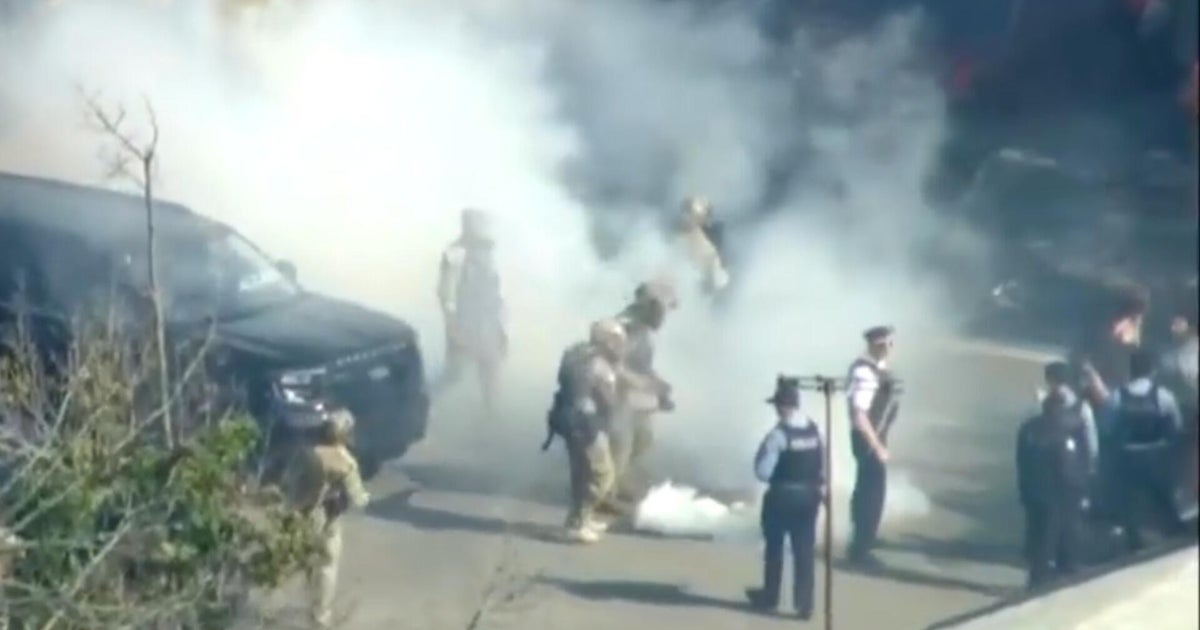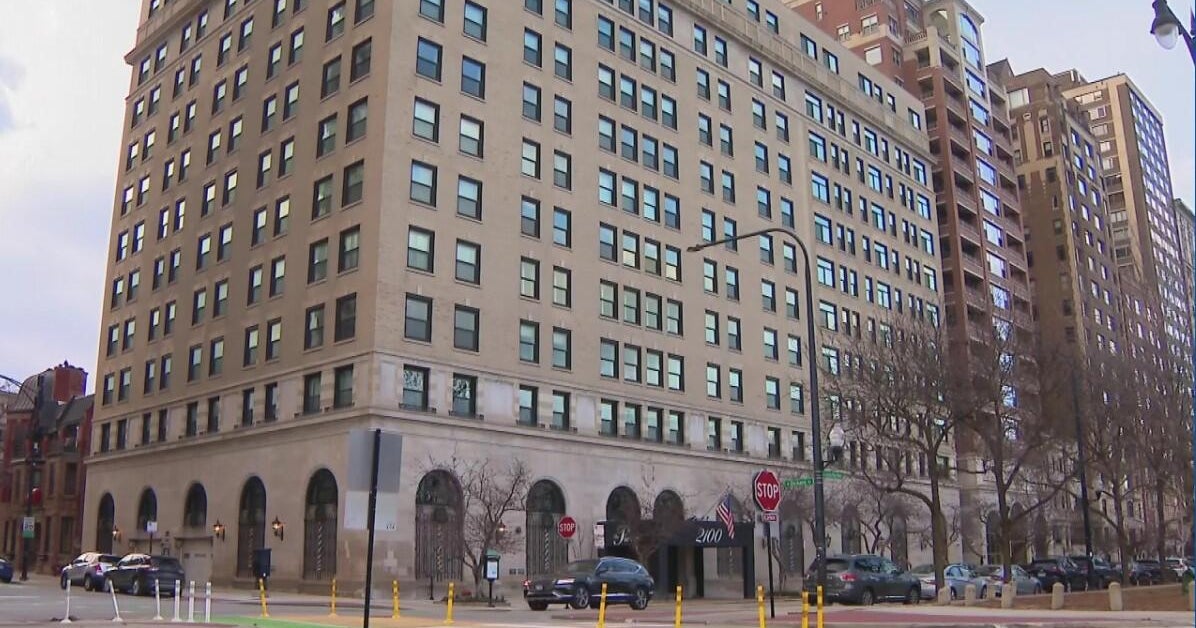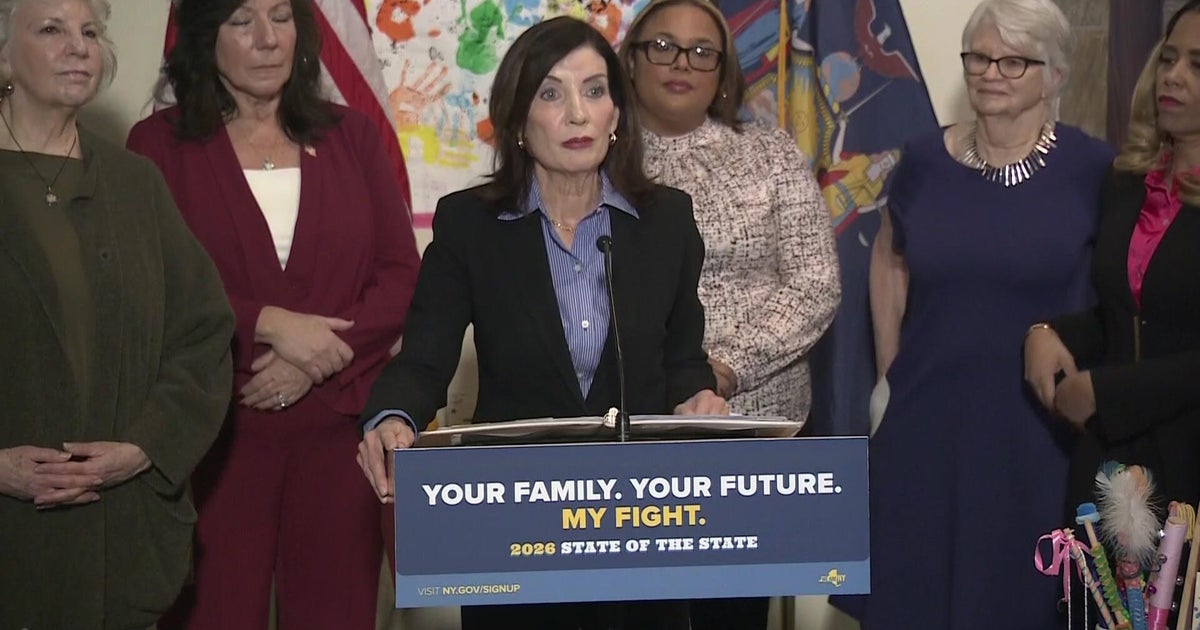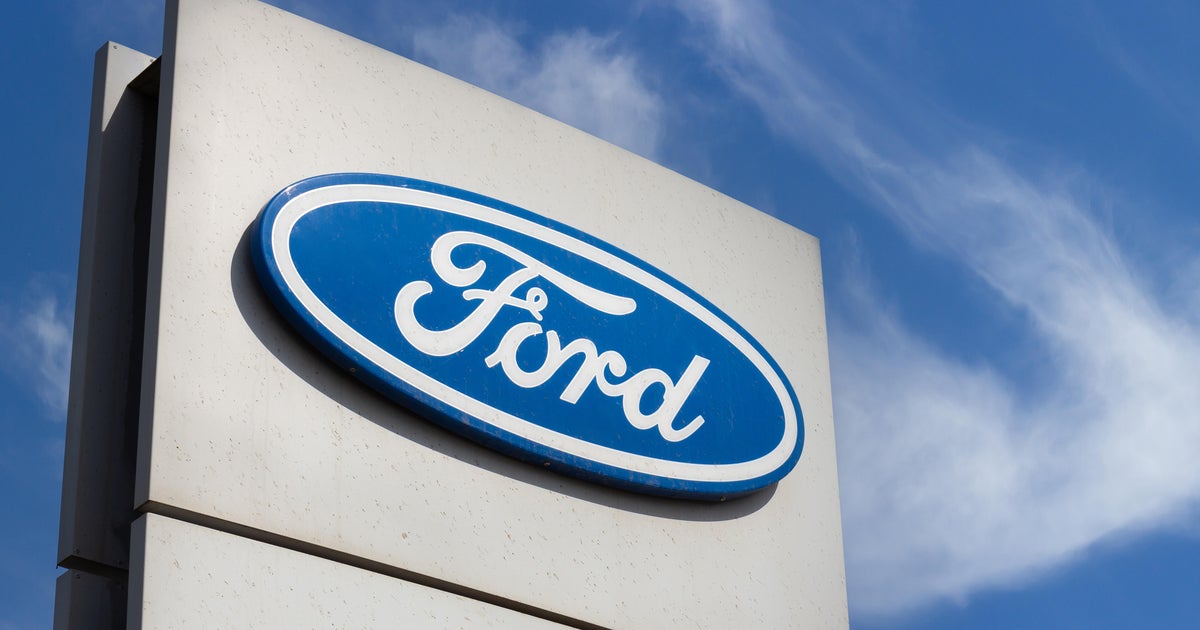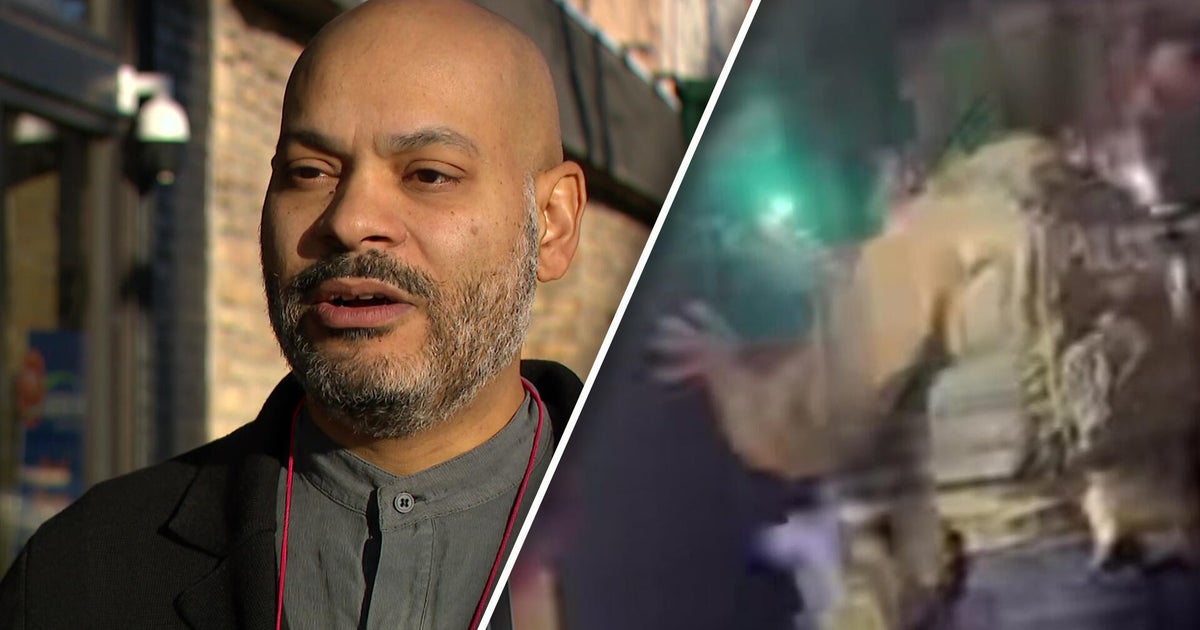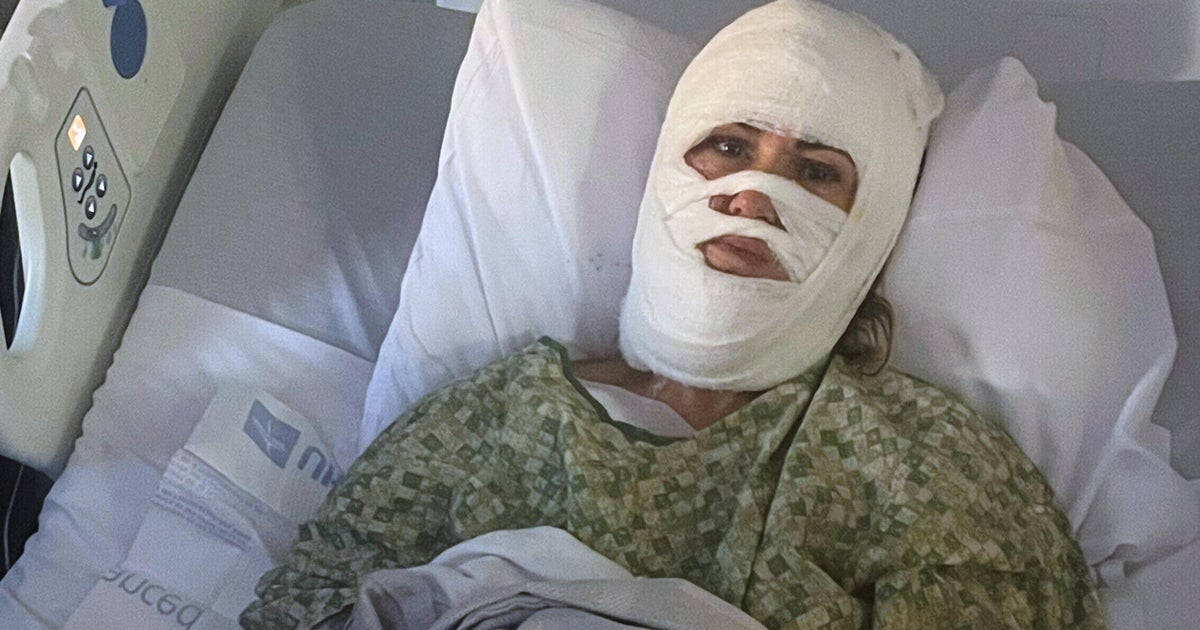World Reacts After US, European Allies Launch Airstrikes Aimed At Syria's Chemical Weapons
WASHINGTON (CBSNewYork/AP) -- The United Nations Security Council on Saturday rejected a Russian-sponsored resolution condemning "aggression" by the United States and its allies, France and Great Britain, after the trio launched military strikes in Syria to punish President Bashar al-Assad for a suspected chemical weapons attack against civilians.
Russian President Vladimir Putin denounced the Friday night raids, and claimed they will make the humanitarian crisis in Syria worse.
Putin added that the strike had a "destructive influence on the entire system of international relations."
Russia's U.N. Ambassador Vassily Nebenzia told the council that the U.S. and its allies struck without waiting for an investigation by the Organization for the Prohibition of Chemical Weapons, calling the attack "hooliganism." The Russian envoy demanded that military action stop "immediately and without delay."
Only three countries -- Russia, China and Bolivia -- voted in favor of the resolution at the end of an emergency meeting of the 15-member council called by Russia on Saturday. Eight countries voted against and three abstained.
A resolution needs at least 9 "yes" votes to be approved.
The vote reflected the deep divisions in the U.N.'s most powerful body, which has been paralyzed in dealing with the seven-year Syrian conflict and chemical weapons use in the country.
"This will not prevent the Syrian people to decide on their own political future without foreign intervention," Syria's U.N. Ambassador Bashar Jaafari said.
U.S. Ambassador Nikki Haley warned the U.S. is locked and loaded if there's another chemical attack.
"We acted to deter the future use of chemical weapons by holding the Syrian regime responsible for its atrocities against humanity," she said.
France's U.N. Ambassador Francois Delattre said the result of the vote sends "a clear message" that Security Council members recognized the need for the airstrikes, and "their proportional and targeted nature."
"And what's most important is no one contests that the use of chemical weapons cannot be tolerated and must be deterred," he said. "That is essential."
Nebenzia said the meeting confirmed that the U.S. and its allies "continue to put international politics and diplomacy in the realm of myth-making -- myths invented in London, Paris and Washington."
"We put facts contrary to your myths," he said. "If we continue on this path, we will soon reach the diplomacy of the absurd."
WATCH: United Nations Security Council Meets To Discuss U.S.-Led Action In Syria
Russia and Syria also clashed with the three Western allies over the legality of the airstrikes and responsibility for the Security Council's paralysis.
Britain's U.N. Ambassador Karen Pierce blamed Russia for repeatedly vetoing resolutions on the use of chemical weapons in Syria and said the U.K. took military action "to save lives," on the legal basis of "humanitarian intervention."
Britain believes "that is wholly within the principles and practices of the United Nations," she said.
Nebenzia called it "a very sad day for the world, for the U.N., for its Charter which was blatantly, blatantly violated, and for the Security Council which has shirked its responsibilities."
"I would like to believe that we will not see a day that is worse than today," he said.
The U.S., Britain and France said they launched airstrikes against Syrian chemical sites after obtaining "proof" that poisonous gas was used last weekend in Douma. Russia and Syria have called the claims fabricated.
WATCH: Pentagon Officials Provide Update On U.S.-Led Strike In Syria
Pentagon officials said the attacks targeted the heart of al-Assad's programs to develop and produce chemical weapons.
"We are very confident that we have significantly crippled Assad's ability to produce these weapons," Pentagon Chief Spokesperson Dana White said Saturday.
"To be clear, the United States is also ready to take additional action in a sustained way to ensure that Syria understands there will be a price to pay if they ever use chemical weapons again," said Vice President Mike Pence.
Syrian television reported that Syria's air defenses, which are substantial, responded to the attack. Defense Secretary Jim Mattis said there were no reports of U.S. losses in what he described as a heavy but carefully limited assault.
President Donald Trump on Saturday morning referred to the action as a "perfectly executed strike."
"Thank you to France and the United Kingdom for their wisdom and the power of their fine military," Trump said. "Could not have had a better result. Mission Accomplished!"
During his speech Friday, the president said the U.S. is prepared to sustain economic, diplomatic and military pressure on al-Assad until he ends what the president called a criminal pattern of killing his own people with internationally banned chemical weapons. The allied attack set off a fierce international debate about whether it was justified.
Hours after the attack, al-Assad appeared business as usual heading into work while hundreds of Syrians backing the leader protested the U.S.-led strikes.
On Saturday, Putin reaffirmed Russia's view that a purported chemical attack in the Syrian town of Douma that prompted the strike was a fake. Putin added that Russian military experts who inspected Douma found no trace of the attack. He criticized the U.S. and its allies for launching the strike without waiting for inspectors from the international chemical weapons watchdog to visit the area.
The Syria attack drew support from the European Union, Germany, Israel and other allies while British Prime Minister Theresa May said reports indicate the Syrian government used a barrel bomb to deliver the chemicals used in an attack on Douma. She said the use of force was "right and legal" in this case.
U.S. Defense Secretary Mattis said the assault was a "one-time shot," so long as al-Assad does not repeat his use of chemical weapons. The strikes were carried out by manned aircraft and from ships that launched cruise missiles from the Mediterranean Sea. Mattis disclosed that the U.S. had not yet confirmed that the most recent suspected Syrian chemical weapons attack, on April 7 in the Damascus suburb of Douma, included the use of sarin gas. He said at least one chemical was used -- chlorine, which also has legitimate industrial uses and had not previously triggered a U.S. military response.
He said the targets selected by U.S., British and French officials were meant to minimize civilian casualties.
"This is difficult to do in a situation like this," he said, in light of the volatility of chemical agents.
Defense officials from the countries involved in the attack gave differing accounts of how much warning was given to the Russians, Syria's powerful ally.
Gen. Joseph Dunford, chairman of the Joint Chiefs of Staff, said the U.S. did not coordinate targets with or notify the Russian government of the strikes, beyond normal airspace "de-confliction" communications. But the description from an ally described things differently.
French Defense Minister Florence Parly said that "with our allies, we ensured that the Russians were warned ahead of time."
At a Pentagon news conference alongside Mattis, and with British and French military officers beside them to emphasize allied unity, Dunford said the attacks targeted mainly three targets in western Syria.
Dunford said missiles first struck a scientific research center in the Damascus area that he said was a center of Syrian research, development, production and testing of chemical and biological warfare technology. The second target was a chemical weapons storage facility west of Homs. He said this was believed to be the main site of Syrian sarin and precursor chemical production equipment.
The third target was a chemical weapons equipment storage facility and an important command post, also west of Homs, Dunford said.
British Prime Minister May said in London that the West had tried "every possible" diplomatic means to stop al-Assad from using chemical weapons. "But our efforts have been repeatedly thwarted" by Syria and Russia, she said.
"So there is no practicable alternative to the use of force to degrade and deter the use of chemical weapons by the Syrian regime," May said. "This is not about intervening in a civil war. It is not about regime change."
French President Emmanuel Macron said in a statement that a target of the strike was the Syrian government's "clandestine chemical arsenal," and that the joint military operation achieved its goals.
Macron said, "The operation against the chemical capabilities of the Syrian regime... has achieved its objectives.The French president "praised the excellent coordination of our forces with those of our British and American allies" during the military strikes.
Israel's premier lauded the American-led strikes against Syria as proof of its commitment to halt the use of chemical weapons.
Prime Minister Benjamin Netanyahu said in a statement Saturday that the joint American-British-French operation showed they would not be satisfied with statements alone. Netanyahu warned al-Assad that his efforts to acquire "weapons of mass destruction" and his allowing Iran to establish itself in Syria threaten his country.
The Arab League's chief expressed regret and alarm at the latest developments in Syria.
Secretary General Ahmed Aboul-Gheit told reporters on Saturday that all parties involved in the crisis, primarily the Syrian government, are responsible for the deterioration of the situation. He says the prohibited use of chemical weapons against civilians "shouldn't be accepted or tolerated."
The Syrian government has repeatedly denied any use of banned weapons.
CBS News foreign correspondent Seth Doane, the only American network correspondent in Damascus, reported that as President Trump was speaking around 4 a.m. local time, they could hear "rumblings" that appeared to be the airstrikes. Doane reported there is a "real sense of defiance" in Syria, even ahead of the airstrikes.
The decision to strike, after days of deliberations, marked Trump's second order to attack Syria. He authorized a barrage of Tomahawk cruise missiles to hit a single Syrian airfield in April 2017 in retaliation for al-Assad's use of sarin gas against civilians.
Mattis estimated the latest air campaign was about twice the size of the 2017 strike. He added that the U.S. expects the Syrian government and its allies to conduct a "significant disinformation campaign," which the Pentagon would rebut with additional information Saturday morning.
The air campaign could frustrate those in Trump's base who oppose military intervention and are wary of open-ended conflicts.
Trump chastised Syria's two main allies, Russia and Iran, for their roles in supporting "murderous dictators," and noted that Russian President Vladimir Putin had guaranteed a 2013 international agreement for al-Assad to get rid of all of his chemical weapons. He called on Moscow to change course and join the West in seeking a more responsible regime in Damascus.
The U.S. missile strike a year ago, which targeted the airfield from which Syrian aircraft had launched their gas attack, was meant to deter al-Assad from further use of chemical weapons. Since that did not work, a more intense attack would aim to degrade his ability to carry out further such attacks, and would try to do this by hitting Syrian aircraft, military depots and chemical facilities, among other things.
The strikes that hit early Saturday in Syria came hours before inspectors from the Organization for the Prohibition of Chemical Weapons were set to arrive to inspect the site of the apparent attack.
The strikes appear to signal Trump's willingness to draw the United States more deeply into the Syrian conflict. Just weeks ago, Trump said he wanted to end U.S. involvement in Syria and bring American troops home to focus on the homeland. The participation of British and French forces enables Trump to assert a wider international commitment against the use of chemical weapons, but the multi-pronged attack carries the risk of Russian retaliation.
In his nationwide address, Trump stressed that he has no interest in a longtime fight with Syria.
"As other nations step up their contributions, we look forward to the day when we can bring our warriors home," Trump said. "And great warriors they are."
The U.S. has about 2,000 troops on the ground in Syria as advisers to a makeshift group of anti-Islamic State fighters known as the Syrian Democratic Forces. They are in eastern Syria, far from Damascus. A U.S.-led coalition has been conducting airstrikes in Syria since September 2014 as part of a largely successful effort to break the IS grip on both Syria and Iraq.
(© Copyright 2017 CBS Broadcasting Inc. All Rights Reserved. The Associated Press contributed to this report.)
